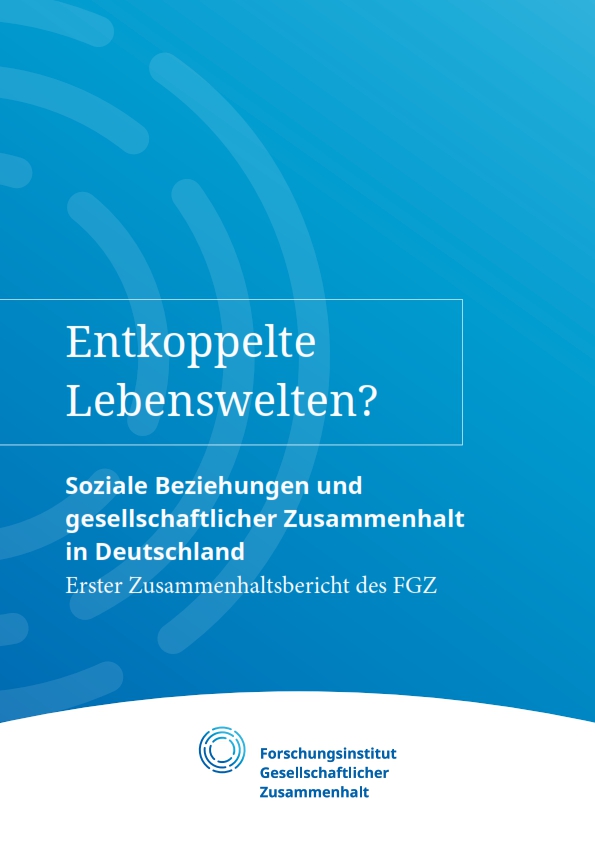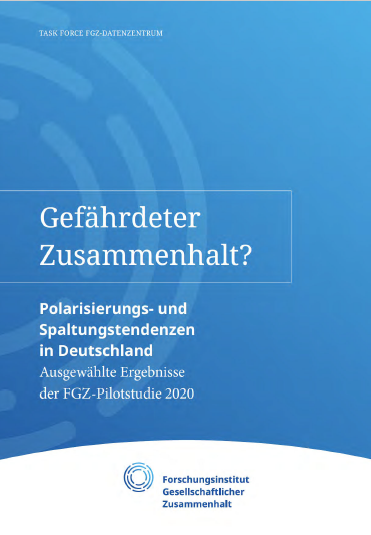Reports and documentation
First Cohesion Report of the RISC
Is there a decoupling of social groups in Germany? And what role do social networks - understood here as a person's circle of acquaintances - play in social cohesion? We explore these questions in this cohesion report. Our analyses are based on representative research data of the German Social Cohesion Panel (SCP) for the year 2021 - a central longitudinal study of the Research Institute Social Cohesion (RISC) with more than 12,000 respondents. To investigate the influence of social networks on social cohesion, we focus on the composition of social circles of acquaintances with regard to selected characteristics. In particular, we are interested in network homogeneity, i.e. the fact that the majority of a person's acquaintances are similar with regard to a certain characteristic. The report is available in German.

Cohesion at risk? Polarisation and division tendencies in Germany: Selected results of the RISC Pilot Study 2020
This report presents the central results of a pilot study on the analysis of social cohesion in Germany, which was already conducted during the founding phase of the "Research Institute Social Cohesion" (RISC). The RISC pilot study 2020 was intended to prepare the longitudinal study "Cohesion Panel", which was launched in September 2021, by developing and testing the basics of the study design and the survey programme. The pilot study was conducted in cooperation with the research-based infrastructure institution "Socio-Economic Panel" (SOEP) at DIW Berlin and the survey institute Kantar in the period from April to September 2020. All analyses presented here are of a preliminary and preparatory nature. On the one hand, due to the small sample size, our sample (N=868 persons) allows only limited conclusions to be drawn about the German population. On the other hand, the conceptual basis of the survey instruments used and the evaluation perspectives are also still at the experimental stage. This report based on the RISC Pilot Study 2020 therefore still serves overall as theoretical and empirical preparation for future reports on social cohesion in Germany. The report is available in German.

Erratum
An error has occurred with illustration 3-4 on page 27. In this file the illustration is shown correctly.


